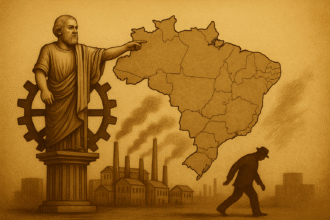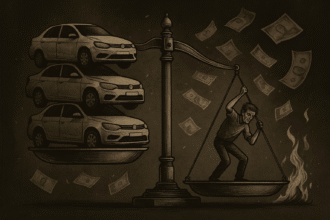In a free economy, innovation is born from risk, experimentation and boldness. In a regulated economy, it dies drowned in protocols, requirements and regulations. The modern State has developed an obsession: to regulate everything that is beyond its control — including that which does not yet exist.
Regulation has ceased to be a tool for ensuring legal certainty and has become an instrument for containing the unpredictable. The new, the spontaneous, the decentralized — all of this seems threatening to centralizing structures. Thus, the more promising something is, the more quickly commissions, councils, agencies, seals, registries and inspections appear.
But what the State does not understand, it does not allow. And what it cannot tax, it criminalizes.
The narrative is always the same: protect the consumer, ensure competition, prevent abuse. But the real effects are predictable:
- The small producer gives up.
- The entrepreneur becomes informal.
- Innovation is stifled.
- The market is concentrated in a few giants with the resources to navigate the bureaucracy.
State regulation acts like an invisible fence: the more you try to move freely, the more you bump into arbitrary limits. And each new requirement is sold as “modernization,” when in fact it represents a new loop around individual autonomy.
It's not about defending anarchy or chaos — but rather about denouncing that regulatory centralization is often just a mechanism of power. It prevents individuals from creating, communities from thriving, and markets from regulating themselves through reputation, competition, and free choice.
The fetish of regulation is a reflection of a State that does not trust its citizens.
And the result is clear: creativity wanes, progress slows, and dependence on government increases. Meanwhile, regulatory agencies expand—often captured by the interests they are supposed to oversee.
In the name of order, we sacrifice freedom.
In the name of protection, we accept suffocation.
But no society becomes prosperous by repressing the initiative of its own individuals.





